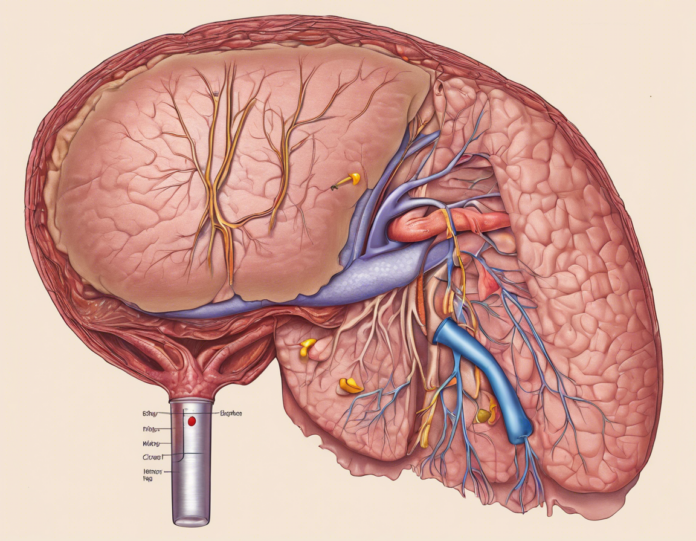Introduction
Fatty liver disease is a common condition characterized by the accumulation of fat in liver cells. While it is typically asymptomatic, in some cases, it can progress and lead to more severe conditions such as cirrhosis or liver failure. Grade 1 fatty liver, also known as mild fatty liver, is the earliest stage of the disease and can be reversible with proper management. In this article, we will delve into the causes, symptoms, and treatment options for grade 1 fatty liver.
Causes of Grade 1 Fatty Liver
– Obesity: Excess weight, especially around the abdomen, is a major risk factor for developing fatty liver disease.
– Poor Diet: Consuming a diet high in refined carbohydrates, sugar, and saturated fats can contribute to the accumulation of fat in the liver.
– Insulin Resistance: Insulin resistance, commonly associated with conditions like type 2 diabetes, can also play a role in the development of fatty liver.
– Genetics: Some people may be predisposed to developing fatty liver disease due to genetic factors.
– Alcohol Consumption: Excessive alcohol intake can lead to alcoholic fatty liver disease.
Symptoms of Grade 1 Fatty Liver
– Fatigue: Feeling tired or lethargic even after adequate rest.
– Abdominal Discomfort: Pain or discomfort in the upper right side of the abdomen.
– Elevated Liver Enzymes: Detected through blood tests, elevated liver enzymes can indicate liver inflammation.
– Weakness: General weakness or malaise.
– Unexplained Weight Loss: Losing weight without trying can be a symptom of fatty liver disease.
– Swelling: Swelling or fluid retention in the abdomen or legs.
Diagnosis
Diagnosing grade 1 fatty liver typically involves a combination of medical history assessment, physical examination, and imaging tests such as ultrasound, CT scan, or MRI. Blood tests may also be conducted to check liver enzyme levels and other markers of liver function.
Treatment Options
The management of grade 1 fatty liver primarily focuses on lifestyle modifications and addressing underlying risk factors. Here are some key approaches to treating grade 1 fatty liver:
- Weight Loss: Achieving and maintaining a healthy weight through a balanced diet and regular exercise can help reduce fat accumulation in the liver.
- Healthy Diet: Emphasize a diet rich in fruits, vegetables, whole grains, and lean proteins while limiting processed foods, sugar, and saturated fats.
- Physical Activity: Engaging in regular physical activity can help improve insulin sensitivity and aid in weight loss.
- Avoid Alcohol: If alcohol consumption is a factor, reducing or eliminating alcohol intake is crucial in managing fatty liver disease.
- Monitoring: Regular follow-ups with healthcare providers to monitor liver function and adjust treatment as needed.
FAQs (Frequently Asked Questions)
Q: Can grade 1 fatty liver progress to more severe stages if left untreated?
A: Yes, if the underlying causes are not addressed, grade 1 fatty liver can progress to more severe stages of the disease.
Q: Is grade 1 fatty liver reversible?
A: With lifestyle modifications such as weight loss and dietary changes, grade 1 fatty liver is often reversible.
Q: Are there any specific dietary recommendations for managing grade 1 fatty liver?
A: A diet rich in fruits, vegetables, whole grains, and lean proteins while limiting sugar and saturated fats is beneficial for managing grade 1 fatty liver.
Q: Can medications help treat grade 1 fatty liver?
A: Medications are not typically prescribed for grade 1 fatty liver, as lifestyle modifications are usually the primary mode of treatment.
Q: How often should liver function be monitored in individuals with grade 1 fatty liver?
A: Monitoring liver function through regular blood tests is typically recommended every 6-12 months, or as advised by a healthcare provider.
In conclusion, grade 1 fatty liver is a common condition that can be effectively managed through lifestyle changes and proper medical supervision. By addressing underlying causes such as obesity, poor diet, and insulin resistance, individuals with grade 1 fatty liver can improve liver health and prevent progression to more severe stages of the disease. It is essential to consult with healthcare providers for personalized treatment plans and regular monitoring to ensure optimal liver function and overall well-being.
